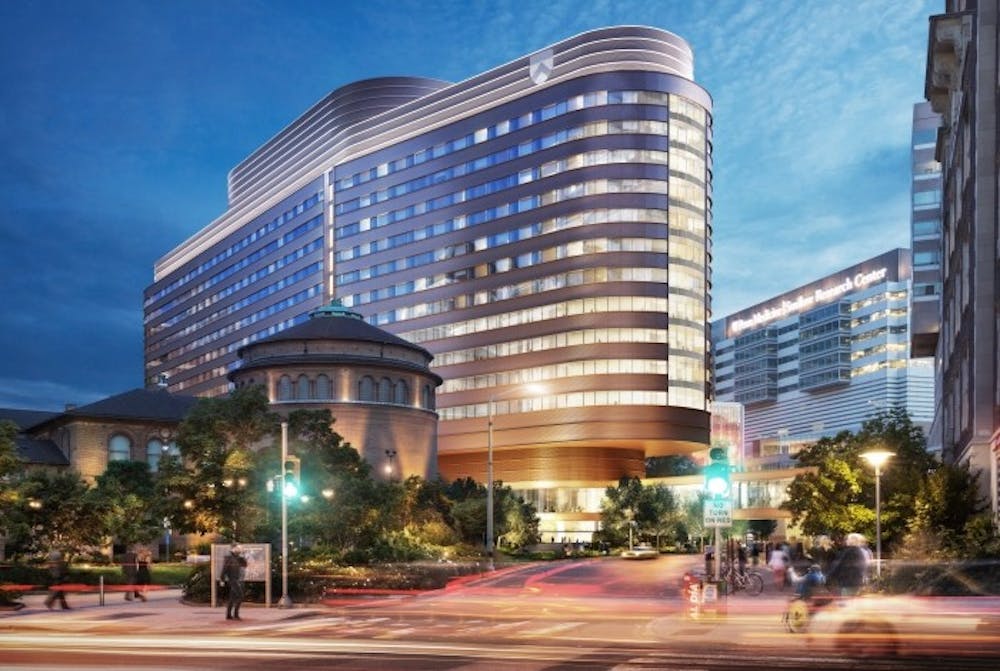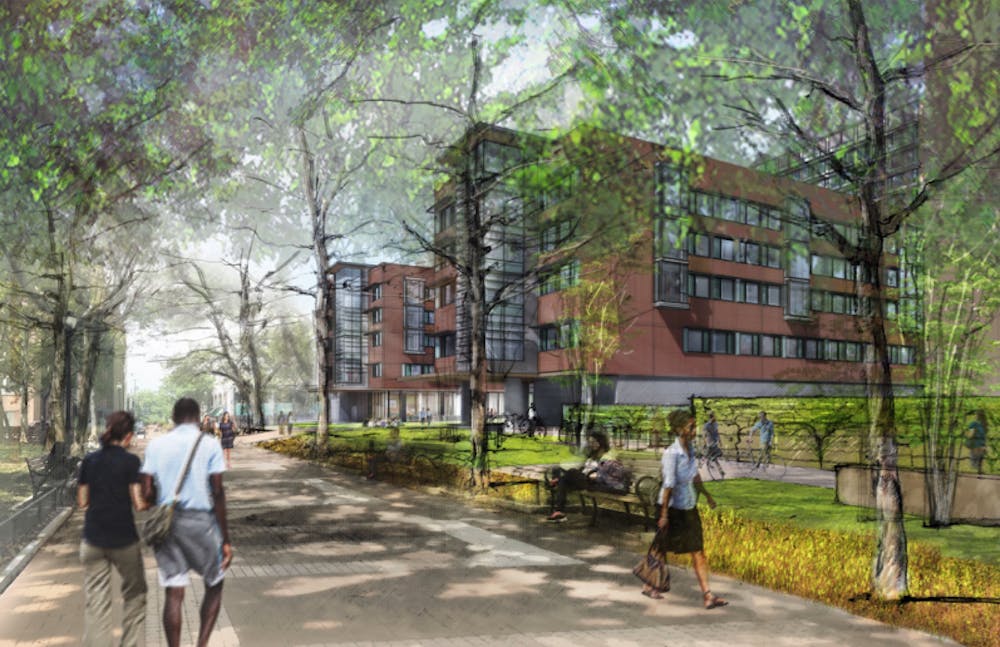
Since Penn is one of the largest real estate owners in Philadelphia, its construction plans are always an important topic of discussion on campus and in the city. In 2017, the University unveiled several major projects, including a new dormitory as well as a new medical research facility, which will be the school's most expensive project in history. Students also mourned the loss of various establishments in University City, from the celebrated gelato outlet Capogiro to the Mexican eatery Mad Mex, which was plagued by health violations.
As 2017 comes to a close, here are some of the changes coming to University City in the new year.

Penn has invested millions in new residential building projects — but not without criticism
The University committed over $1 billion to building projects this year. In August, the institution approved its largest capital project in history — a $1.5 billion Hospital Pavilion at Penn Medicine.
The Pavilion is estimated to be completed by 2021. It will house inpatient care for heart and vascular medicine and surgery, neurology and neurosurgery, the Abramson Cancer Center, and a new emergency department.
Administrators later announced a new $75 million triangle-shaped Wharton building, setting academic building projects as an important part of the University agenda this year. The building, which will stand opposite the Quad at 37th and Spruce streets and Woodland Walk, is slated to contain undergraduate lecture halls, study areas, and administrative offices.
Residential projects also made the news this year, with the fall semester marking the grand reopening of Hill College House after 15 months of renovation. The new and improved dormitory includes over 35 study lounges, an A/C system, more music practice rooms, and gender-neutral bathrooms, though some residents still found certain flaws in the dormitory. Some complained about the overactive fire alarms, while others noted that the new dorm incorporates old heating and water systems that have proven to be faulty in other Penn buildings.
In November, Penn revealed plans for another student dorm, New College House West, which will cost a record-breaking $163 million. News of the dorm, which will be built over the high rise field, was met with some student criticism. Some pointed out that the project would take away one of the remaining green spaces on campus while others questioned the need for more on-campus housing.

Meanwhile, almost a dozen eateries in University City closed down
The new, expensive building projects on campus have been paired with a swath of food establishment closures in 2017. This was not exceptionally out of the ordinary for eateries in University City, many of which frequently close after less than 10 years of operation. Administrators and experts say the short lifespan of many of these restaurants is likely due to rising rents in West Philadelphia as well as health violations.
Some of the eateries that shut down were replaced with alternatives. For example, while students mourned the closure of the popular Huntsman Hall eatery Bridge Cafe in May, many were not opposed to its replacement, Pret A Manger. Other outlets, like the deeply missed Capogiro, which closed in October due to an expired lease, have yet to announce replacements.
Another big story that played out in 2017 was the legal battle between the Fresh Grocer, the supermarket located at 40th and Walnut streets, and Penn, which decided to end its lease with the supermarket in 2016. Despite the University's plans to replace the location with an Acme Markets store, the local supermarket has continued to stay at its current location and says it will do so indefinitely.
While students can look forward to some new eateries such as the range of upscale food and beverage chains coming to the fast food court on 34th and Walnut streets next year, they have also had to bid farewell to some of their favorite haunts, including Harvest Seasonal Grill & Wine Bar, Doc Magrogan’s Oyster House, and Mad Mex.
The Daily Pennsylvanian is an independent, student-run newspaper. Please consider making a donation to support the coverage that shapes the University. Your generosity ensures a future of strong journalism at Penn.
Donate






